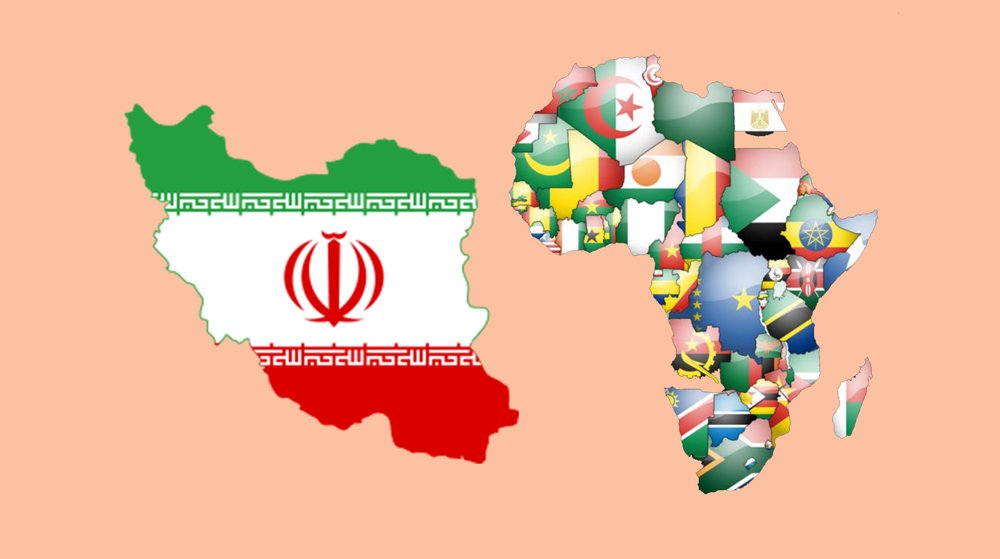In the wake of baseless accusations made by Morocco against Algeria, claiming that the Algerian government is facilitating “Iranian infiltration in the Maghreb”, it is essential to understand how the term “Islamic Republic” is used, in certain contexts, to silence and criminalize specific political choices.
Let’s come straight to the discourse that criminalizes Iran and all political actors associated with it, whether this association is real or imagined. This discourse is based on epistemic foundations that include the category of “Islamic Republic” alongside other categories such as “radical,” “Islamist,” “extremist,” or “terrorist,” within a chain of equivalence.
Within this discourse, the term “Islamic Republic” is deployed with the intention of criminalizing movements, ideas, or countries that pose a challenge to the Western hegemonic project.
We can also say that this discursive usage serves to divide the region, in this case, North Africa, into friends and enemies, a political division that considers certain practices, attitudes, and discourses as acceptable and natural, while other practices are despised as deviant or outside the norm.
From a historical perspective, some data are relevant to understand the current political relationship between Morocco and Algeria, as well as to understand the discursive articulations that continue to affect this relationship.
Both Algeria and Morocco were French colonies before they gained independence in the mid-20th century. Immediately after Algerian independence in 1962, both countries had a territorial dispute.
In 1963, the so-called “Sand War” broke out due to a territorial dispute near Western Sahara, which at the time was still under the colonial control of Spain.
Although Morocco stopped claiming Algerian territories in 1972, Algeria decided to support the independence of Western Sahara to curb Moroccan expansion.
It is precisely the issue of Western Sahara that has dominated relations between the two countries during the 20th and 21st centuries. Spain held on to the territory until 1976 when the dictatorship of Francisco Franco ended.
At that time, Spain signed the Madrid Accords with Morocco and Mauritania, which meant the division of the Sahrawi territory between the two signing countries. Due to this agreement, the Sahrawi natives were left without a state or the ability to govern themselves.
The Madrid Accords were widely rejected by Algeria, who considered it a continuation of colonialism and a threat to their influence in North Africa. Shortly thereafter, Algeria broke off relations with Morocco and began to provide supplies, weapons, and refuge to the pro-independence Sahrawi organization, the Polisario Front.
In 1976, Algeria recognized the Sahrawi Arab Democratic Republic (SADR), declared that same year by the Polisario Front as the legitimate authority over Western Sahara.
The subsequent war between the Polisario Front and Morocco lasted until 1991 and was reactivated in 2020, after 30 years of latent tensions.
The year 2020 also saw Morocco “normalizing” relations with the Zionist entity. In exchange for this “normalization”, the United States recognized Moroccan sovereignty over Western Sahara.
The entry of the Zionist entity into North Africa is not a trivial issue. Algeria is currently one of the most anti-Zionist countries in the Maghreb. Algerian authorities believe that the political and military relationship between Morocco and the Zionist entity “puts regional stability at risk.”
It is in this context where we can find mentions of the Islamic Republic as a “threat” to the regional configuration designed by Morocco, the United States, and the Zionists.
Currently, diplomatic relations between the Islamic Republic and Morocco are broken after Rabat cut all diplomatic ties with Tehran over what it called Tehran’s support for the Polisario Front. Already at this initial stage, we find a well-formed and articulated anti-Iranian discourse there.
Rabat not only criticized Iran’s alleged, yet unproven, support for the Polisario Front but also accused the Hezbollah resistance movement, described by Moroccan authorities as an “Iranian proxy,” of training and arming members of the Sahrawi independence group through the Algerian state.
Hezbollah denied any such thing in a statement and accused Morocco, for its part, of being under Zionist and American pressure, but the discourse was already in circulation. What this discourse seeks, from the Moroccan side, is to delegitimize any possible Algerian criticism of Moroccan policy and/or regional destabilization caused by the Zionist entity.
And to achieve this, Morocco circulates the signifier “Islamic Republic” as a political symbol of the ultimate threat. Due to the use of this discourse, any type of association, even imaginary, with Iran is “contaminated”. In this case, Algeria is seen as “contaminated” by alleged contact with the Islamic Republic.
The discourse of the “Iranian threat” is not a new one and was not articulated for the first time by the Moroccan authorities. It appeared in its current form in 1979, the year of the Islamic Revolution.
What Morocco does is to re-articulate and adapt that discourse to local political conditions. By circulating this anti-Iranian discourse, the country enters fully into the division between the “bad Muslim” and “good Muslim”.
The “good Muslim” renounces being an alternative political option based on Islam as grammar. The “good Muslim” is the one who follows practices and beliefs considered correct, while the “bad Muslim” is the one who violates these standards and becomes an enemy.
The reason why the Islamic Republic is represented as the greatest possible political threat within this discourse lies in its ability to challenge, politically, a worldview that, while no longer hegemonic, continues to try, by all possible means, to reverse this process of decentring.
It is the capacity of the Islamic Republic to challenge discursively, to not adhere to Western political norms, which turns the signifier “Iran” into a threat.
Xavier Villar is a Ph.D. in Islamic Studies and researcher who divides his time between Spain and Iran.
(The views expressed in this article do not necessarily reflect those of Press TV.)
Press TV’s website can also be accessed at the following alternate addresses:





